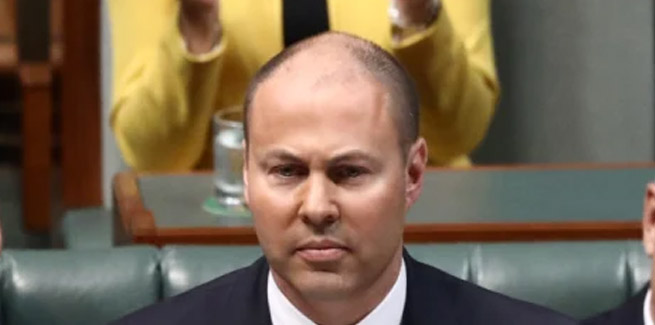In an address to Australian Industry Group members in Melbourne, Josh Frydenberg spoke on financial markets responding to climate change and how it would affect Australia’s transition to low emissions.
He noted climate risk had become one of the key issues raised in discussions with domestic and offshore chief executives and investors.
“Markets are moving as governments, regulators, central banks and investors are preparing for a lower emissions future,” Mr Frydenberg said.
“It’s a long-term shift, not a short-term shock.”
Around 129 countries have committed to net-zero emissions by 2050, but Australia is not yet one of them.
However, Mr Frydenberg has warned that as investors grow increasingly focused on the physical and transition risks to their investments stemming from climate change, they will be shifting their money away from certain markets.
The effect could threaten Australian banks’ imported capital, $4 trillion of which comes from foreign investment, while around 20 per cent of wholesale funding is sourced offshore.
“Importantly, considerations around climate risks are now being hard wired into how global financial institutions allocate capital – at both a firm and country level – and how they engage with clients and companies,” Mr Frydenberg commented.
“Disclosure of material financial risks facing firms is allowing investors and markets to obtain clearer information about the nature and extent of these risks. This is guiding the mobilisation of trillions of dollars in support of the transition.”
As noted in recent parliamentary hearings, the big four banks all share the same two largest shareholders: US investment giants BlackRock and Vanguard.
Both companies, as well as other institutional investors have committed to the net zero by 2050 goal. In particular, BlackRock chief executive Larry Fink wrote a letter to all major CEOs, including the big four bosses, saying that the group would consider reallocating capital if companies didn’t have a long-term game plan for climate risk.
“Reduced access to these capital markets would increase borrowing costs, impacting everything from interest rates on home loans and small business loans, to the financial viability of large-scale infrastructure projects,” Mr Frydenberg said.
“Australia has a lot at stake. We cannot run the risk that markets falsely assume we are not transitioning in line with the rest of the world.”
Big four executives made the same argument in a recent parliamentary hearing.
Westpac chief financial officer Michael Rowland reported the major banks each raises around $30 billion a year, with a heavy reliance on foreign funders.
Foreign institutional investors also made up significant chunks of their shareholder bases, taking up around 25 per cent and 24 per cent for NAB and Westpac respectively.
David Gall, group executive for corporate and institutional banking at NAB, warned legislators would have to be “very careful” and there could be unintended funding consequences if they mandated banks could not exit a sector, such as energy or resources.
He also noted around a quarter of the bank’s investor meetings had a focus around environmental, social or governance factors, with questions around fossil fuel transition pathways and financing.
Mr Frydenberg also cautioned climate risks could have the potential to create financial system instability, if they are not properly managed.
“In the global financial crisis, the mispricing of risk and a lack of understanding of who was exposed to the default risks associated with mortgage-backed securities triggered a widespread dislocation in financial markets and a seizing up of liquidity,” Mr Frydenberg said.
“In the context of climate change, a sharp and unanticipated adjustment in expectations around future policy could similarly see a sudden reassessment of risk and create uncertainty over exposure to those risks.”
Banks have already considered climate risk and how varying climate change scenarios would affect their portfolios, while a number of Australian companies have already started to commit to net zero or other emission-cutting targets.
APRA has required the major banks to start stress-testing their operations and has plans to release its final guidance for managing climate risks in the last quarter of the year.
At the same time, ASIC has been working to establish reporting frameworks, which would require disclosure of material climate risks to investors.
However, Mr Frydenberg told financial institutions to not pull out from resources and energy producers.
“At the same time, there is a message to Australian banks, superannuation funds and insurers,” he said.
“If you support the objective of net zero, do not walk away from the very sectors of our economy that will need investment to successfully transition.”
Mr Frydenberg’s speech has come ahead of a G20 minister meeting in October, where they will consider a road map for sustainable finance.
[Related: RBA rings alarm on high debt levels]
 ;
;
